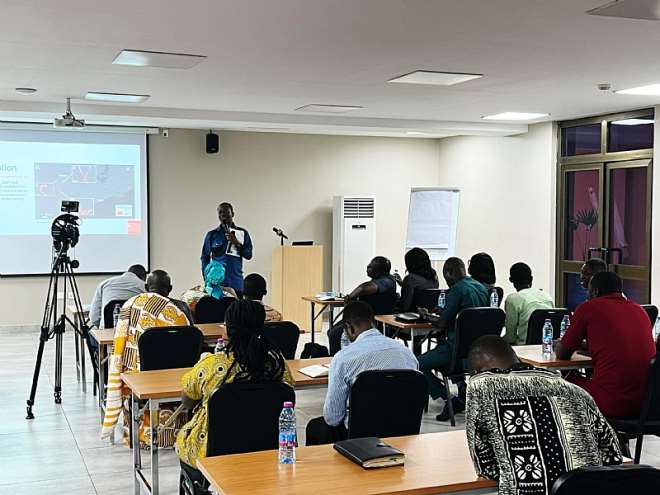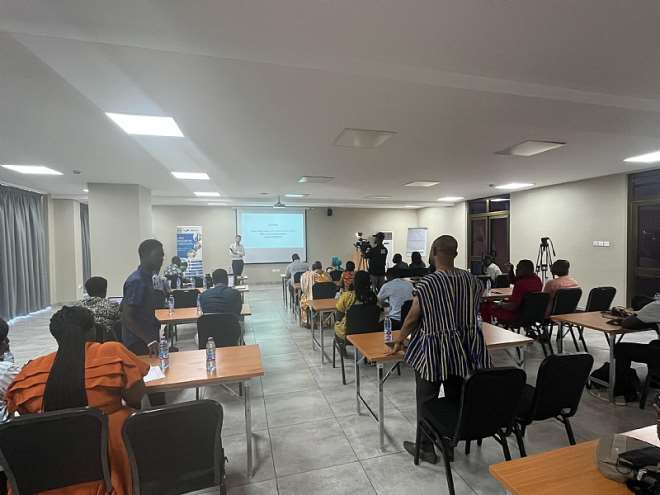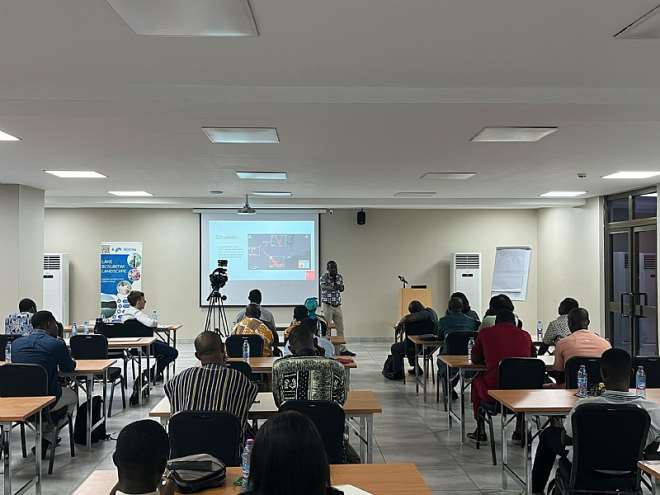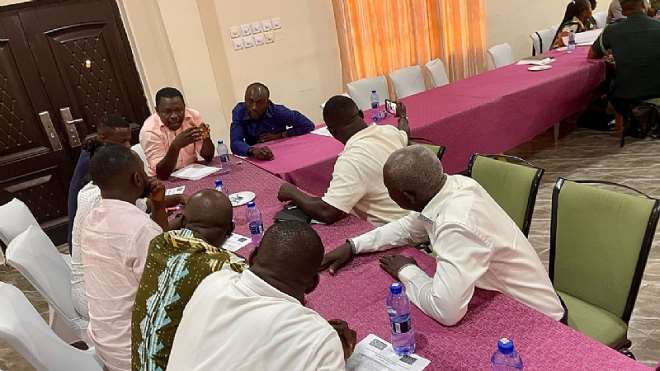Illegal small-scale mining in Ghana poses a complex national challenge, causing irreversible environmental damage, weakening state institutions, and deepening socio-economic inequality. Two stakeholder convenings were held in Kyebi and Kumasi to address the crisis.
The convenings aimed to foster multi-stakeholder dialogue on the root causes of illegal mining and explore practical solutions to mitigate its socio-environmental impacts.
Funded through a grant from the Economic and Social Research Council (ESRC) Impact Acceleration Account (IAA), and facilitated by A Rocha Ghana in collaboration with Dr. Clement Sefa-Nyarko of King’s College London the initiative supports the project titled “Solution-Oriented Exploratory Workshops with Small-Scale Mining Stakeholders in the Context of Increasing Illegal Mining in Ghana.”
The workshops aimed to build consensus among key actors, including traditional leaders, civil society organizations, affected communities, and government representatives, to inform long-term strategies for sustainable mining governance. Key issues identified include environmental degradation, agricultural and water security, law enforcement and security challenges, governance gaps, cultural and social erosion, and CSO fatigue and systemic disempowerment.
The convenings aimed to identify key drivers of illegal mining in local contexts, engage diverse stakeholders in solution-oriented discussions, and lay the groundwork for a larger, policy-focused intervention by generating actionable recommendations.
Dr. Clement Sefa-Nyarko conducted a leadership analysis of Ghana’s mining industry, examining three dominant models: Position-Based, Personality-Based, and Outcome-Oriented. The consensus was that Ghana needs a process-based leadership model that combines state authority, charisma, and community activism.
The recommendations included immediate national interventions, such as declaring an environmental emergency, piloting solutions in high-risk areas, and legal amendments for community oversight. Other solutions included strengthening governance and enforcement, empowering local communities, establishing district mining committees, repealing legal loopholes, and implementing strict law enforcement. Regulatory and policy reforms included simplified licensing, exclusive rights for Ghanaian citizens, and economic alternatives like agro-based job creation.
The study also suggested implementing a one-stop-shop licensing system and strict enforcement of laws for recalcitrant migrants. The findings underscore the need for a process-based leadership model integrating state authority, charisma, and community activism.
Stakeholders who participated
Ministry of Food and Agriculture
Ghana Police Service
Forest Service Divison
National Investigation Bureau
Immigration
District Assemblies
Water Resource Commission
National Commission for Civic Education
Environmental Protection Agency
Kings College London
Traditional Leaders
Ghana Meteorology
Small Scale Miners






